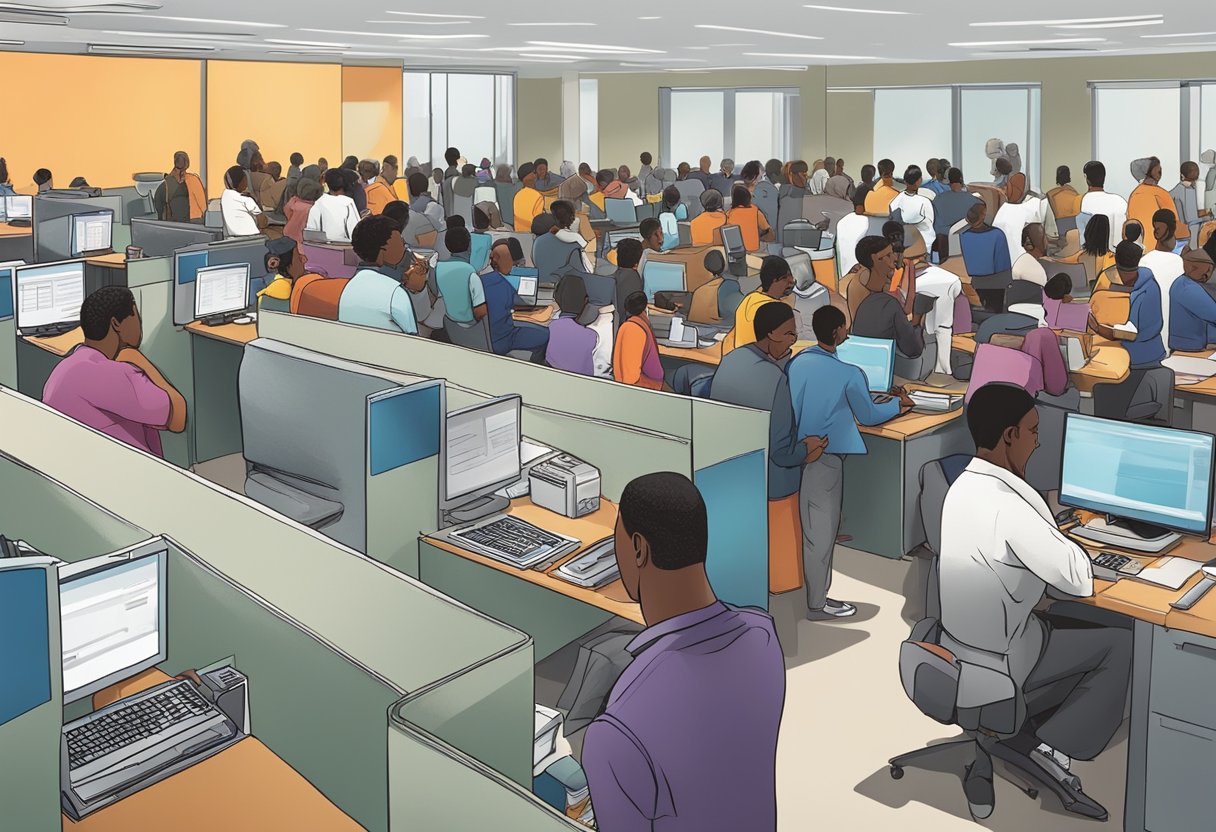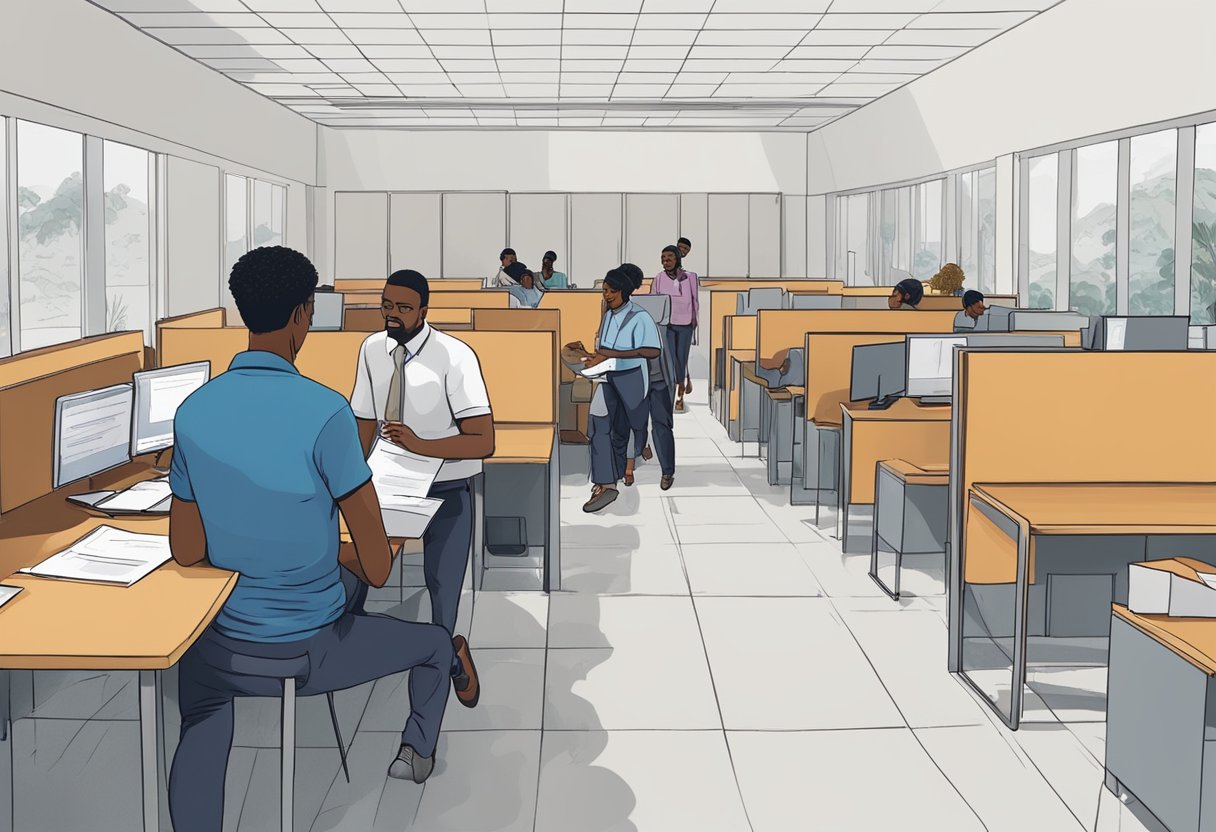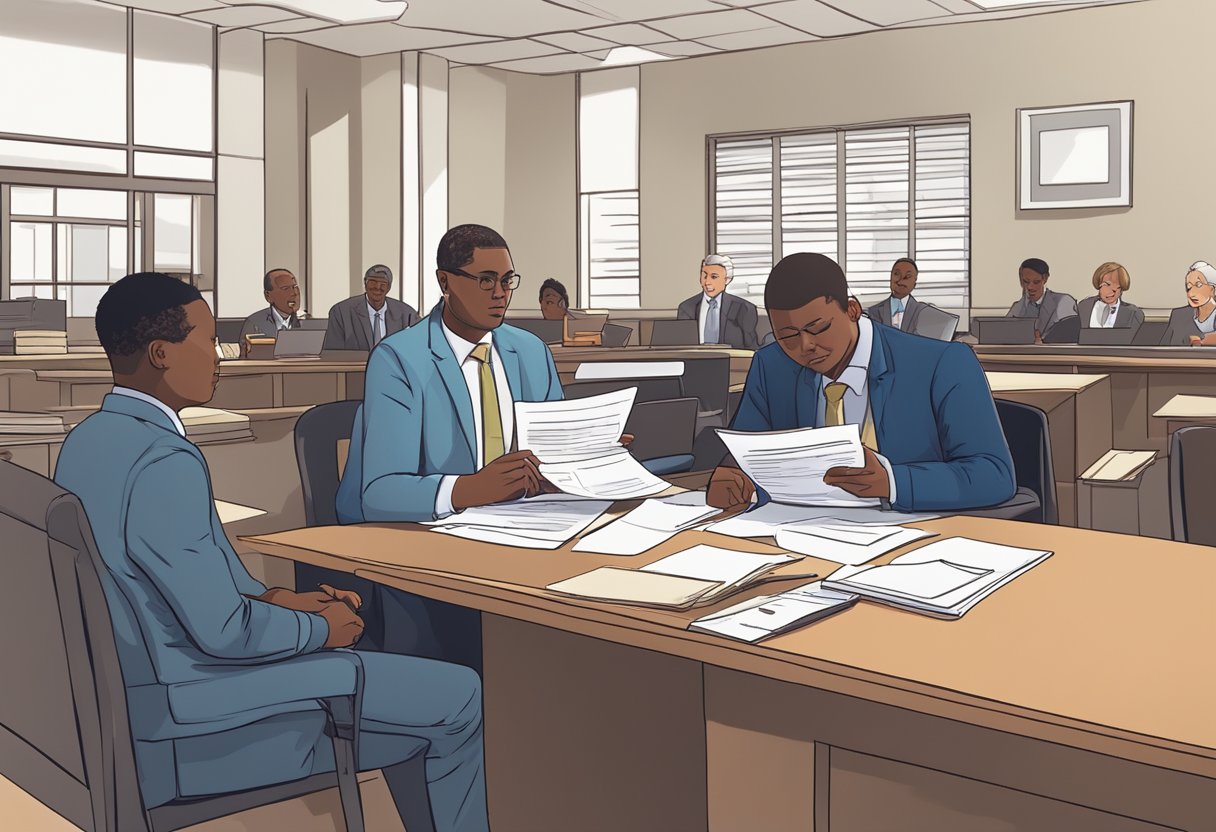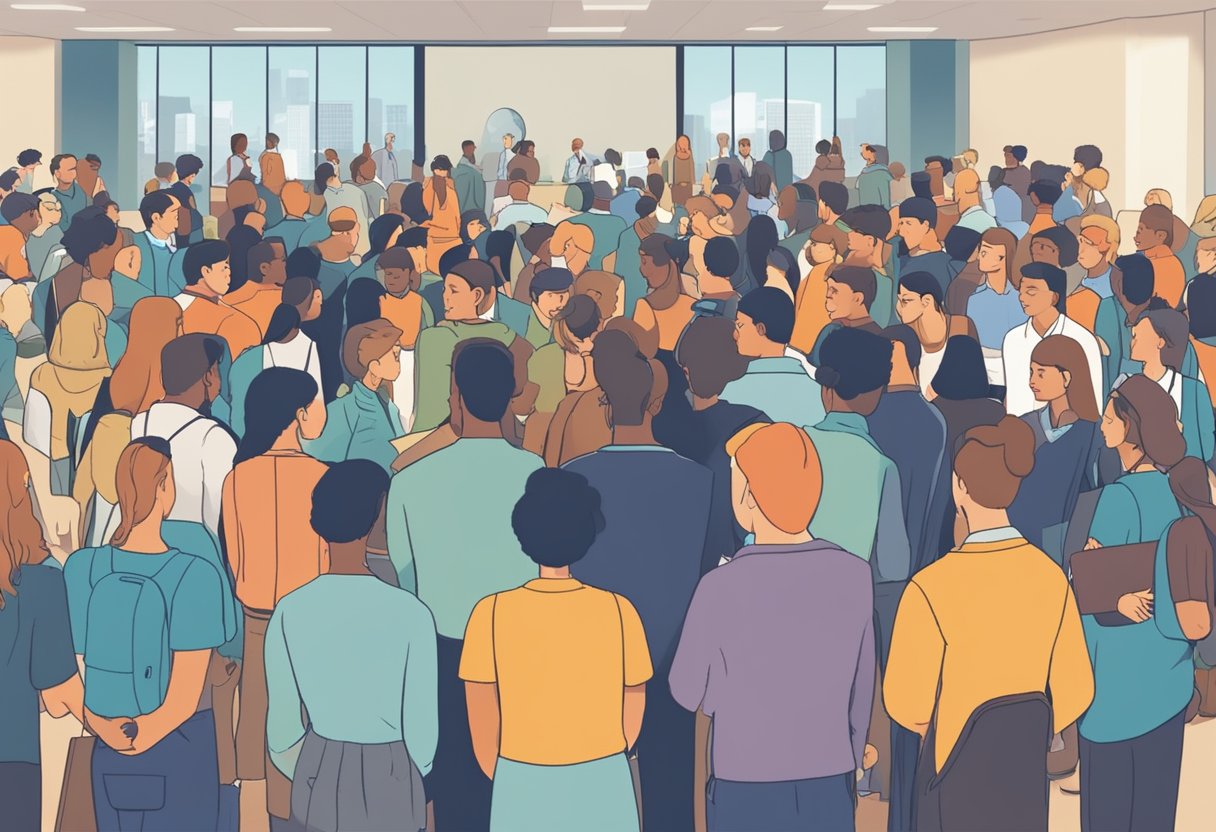Late applications for 2024 in South Africa can be a stressful and overwhelming process for students who have missed the initial application deadlines. However, it is important to remember that all hope is not lost. There are still options available for those who wish to continue their higher education journey in 2024. In this article, we will explore the steps to take for late applications, alternative pathways, financial implications, legal considerations, and support resources available to students.

Understanding late applications is the first step towards taking the necessary actions to secure a spot at a university in South Africa. Late applications are essentially applications submitted after the official application deadline has passed. It is important to note that not all institutions accept late applications, and those that do may have specific requirements and procedures that need to be followed. It is crucial to research and understand the policies of each institution to which you plan to apply.
Steps to take for late applications include contacting admissions offices directly, having all required documents ready, being flexible on course choices, considering online applications, utilizing the Central Applications Office (CAO), paying the late application fee, checking for financial aid options, and being prompt in communication. These steps are crucial to ensure that your application is complete and meets the requirements of the institution. It is also important to note that some institutions may require exams or interviews as part of the application process, so be prepared for these possibilities.
Key Takeaways
- Late applications are applications submitted after the official application deadline has passed.
- Steps to take for late applications include contacting admissions offices directly, having all required documents ready, being flexible on course choices, considering online applications, utilizing the Central Applications Office (CAO), paying the late application fee, checking for financial aid options, and being prompt in communication.
- There are alternative pathways, financial implications, legal considerations, and support resources available to students who are considering late applications.
Understanding Late Applications
Overview of the South African Academic Calendar
The South African academic calendar typically runs from January to December, with the first semester starting in February and the second semester starting in July. However, different institutions may have slightly different academic calendars, so it is important to check with each institution for specific dates and deadlines.
Policies for Late Applications
Late applications refer to applications submitted after the official deadline has passed. While some institutions may not accept late applications, others may allow late applications under certain conditions. For instance, some institutions may allow late applications for certain courses or programs, while others may require applicants to pay an additional fee for late applications.
It is important to note that late applications may be considered on a case-by-case basis, and acceptance is not guaranteed. Therefore, it is advisable to submit applications as early as possible to avoid missing out on opportunities.
In summary, understanding the policies and deadlines for late applications is crucial for prospective students in South Africa. It is recommended to check with each institution for specific requirements and deadlines and to submit applications as early as possible to increase the chances of acceptance.
Steps to Take for Late Applications

Late applications for the 2024 academic year in South Africa are still open, and students who missed the initial application window can still apply for admission. Here are some steps to take for late applications to ensure a smooth process:
Assessing Your Options
Before applying, it’s important to assess your options and determine which institutions are still accepting late applications. Some colleges and universities may have closed their late application windows, while others may still be accepting applications. To find out which institutions are still accepting late applications, students can search online or contact the institutions directly.
Contacting Institutions Directly
Once you have determined which institutions are still accepting late applications, it’s important to contact them directly to confirm the application process and requirements. Some institutions may require additional documentation or have specific deadlines for late applications. Contacting the institution directly can help ensure that you have all the necessary information to complete your application.
Preparing Necessary Documentation
When applying for admission, students will need to prepare necessary documentation, such as academic transcripts, identification documents, and application fees. It’s important to ensure that all documentation is certified and up-to-date. Some institutions may also require additional documentation, such as motivation letters or references from school teachers. Students should check with the institutions directly to determine which documents are required.
In conclusion, late applications for the 2024 academic year in South Africa are still open, and students who missed the initial application window can still apply for admission. By assessing your options, contacting institutions directly, and preparing necessary documentation, you can ensure a smooth application process.
Alternative Pathways

Late university applications can be a stressful experience. However, there are alternative pathways that can be explored to ensure that students can still achieve their academic goals. Here are some options to consider:
Exploring Private Institutions
Private institutions in South Africa offer a range of courses and qualifications that can be completed on a full-time or part-time basis. Private institutions are not bound by the same application deadlines as public universities, and they often have more flexible entry requirements.
It is important to note that private institutions can be more expensive than public universities. Students should thoroughly research the institution and the qualifications on offer before making any commitments.
Considering Gap Year Opportunities
Taking a gap year can be a great way to gain new experiences and develop skills that can be useful in future academic pursuits. Gap year opportunities can include volunteering, internships, or travel.
During a gap year, it is important to stay focused on academic goals and to use the time wisely. Students should consider using the time to prepare for future studies by taking online courses or studying independently.
Looking into Online Courses
Online courses are becoming increasingly popular in South Africa. Many universities and private institutions offer online courses that can be completed on a flexible schedule. Online courses can be a great way to gain new skills and knowledge, and they can be completed from anywhere with an internet connection.
Students should ensure that the online course is accredited and that the qualification is recognized by employers and other institutions. It is also important to have a reliable internet connection and to be self-motivated when studying online.
Overall, there are alternative pathways available for students who have missed the deadline for university applications. Students should carefully consider their options and choose the pathway that best suits their academic goals and personal circumstances.
Financial Implications

Late applications for universities in South Africa can come with financial implications that students should be aware of before applying. This section will provide an overview of some of these implications.
Understanding Late Application Fees
Late application fees vary depending on the institution, and the fees can be substantial. For example, the University of Cape Town charges a non-refundable late application fee of ZAR 1,000 (approximately USD 68) for South African applicants and ZAR 3,000 (approximately USD 204) for international applicants. It is important to note that the late application fee is in addition to the regular application fee, which can range from ZAR 100 to ZAR 500 (approximately USD 7 to USD 34), depending on the institution.
Seeking Financial Aid and Scholarships
Late applicants may also miss out on financial aid and scholarships opportunities. Many universities have early application deadlines for financial aid and scholarships, and late applicants may not be considered for these opportunities. However, it is still worth checking with the institution’s financial aid office to see if any opportunities are available.
In addition to institutional financial aid and scholarships, students can also explore external scholarship opportunities. Websites such as Scholarships.co.za and EduConnect provide information on available scholarships for South African students.
Overall, students should be aware of the financial implications of late applications and plan accordingly. It is important to research the specific institution’s late application policies and fees and explore all available financial aid and scholarship opportunities.
Legal Considerations

Visa and Permit Deadlines
International students who wish to study in South Africa are required to have a valid study visa or permit. It is important to note that the visa and permit application process can take several weeks or even months, and it is therefore advisable to start the process as soon as possible. The Department of Home Affairs is responsible for issuing study visas and permits.
The visa or permit application process requires students to provide certain documents, such as proof of acceptance at a South African institution, proof of financial means to support themselves, and a valid passport. It is recommended that students consult the South African embassy or consulate in their home country for specific requirements and deadlines.
Residency Requirements for International Students
International students who wish to study in South Africa are also required to comply with certain residency requirements. These requirements may vary depending on the type of visa or permit issued. For example, students with a study visa are required to attend classes regularly and maintain a minimum attendance rate of 80%. Failure to comply with these requirements may result in the cancellation of the visa or permit.
It is important for international students to familiarize themselves with the residency requirements and to ensure that they comply with them. Students who are unsure about the requirements should seek advice from the institution they are attending or from the Department of Home Affairs.
In summary, international students who wish to study in South Africa should be aware of the visa and permit application process and the residency requirements. It is recommended that students start the application process as soon as possible and consult with the relevant authorities to ensure compliance with the requirements.
Support Resources

Late university applications can be a stressful process, but there are resources available to help ease the burden. Here are a few support resources that can assist applicants in South Africa:
Academic Advising Services
Many universities offer academic advising services to assist students with the application process. These services can provide guidance on course selection, application requirements, and deadlines. Applicants can access these services by contacting the admissions office of their preferred university.
Community and Online Forums
Community and online forums can be a valuable resource for applicants who are seeking advice and support. These forums can provide a platform for applicants to connect with others who are going through the same process. They can also provide information on application requirements, deadlines, and financial aid options.
Applicants should exercise caution when using online forums and ensure that the information they receive is accurate and reliable. It is important to verify any information obtained from these sources with official university websites or admissions offices.
Overall, applicants should take advantage of the support resources available to them to ensure a successful late application process. By seeking guidance and support, applicants can navigate the application process with confidence and ease.
Frequently Asked Questions

How can I submit a late application to a South African university for 2024?
Late applications for South African universities can be submitted online through the university’s official website. Applicants will need to create an account and follow the outlined application process. It is important to note that late applications are subject to availability and meeting the minimum requirements does not guarantee acceptance.
What are my options if I missed the application deadline for 2024 at South African universities?
If you missed the application deadline for 2024 at South African universities, you still have the option to submit a late application. Late applications are subject to availability and meeting the minimum requirements does not guarantee acceptance. It is recommended to apply as soon as possible to increase your chances of acceptance.
Are there any South African universities that allow late applications without an application fee for 2024?
Some South African universities may waive the application fee for late applications. However, it is important to check with the specific university for their policy on application fees for late applications.
What steps should I take if I want to apply late to UKZN, CPUT, UJ, or TUT for 2024?
To apply late to UKZN, CPUT, UJ, or TUT for 2024, applicants should visit the official university website and follow the outlined application process. Late applications are subject to availability and meeting the minimum requirements does not guarantee acceptance.
How does the late application process work for universities like Unisa and Stellenbosch in 2024?
The late application process for universities like Unisa and Stellenbosch in 2024 is similar to other South African universities. Applicants should visit the official university website and follow the outlined application process. Late applications are subject to availability and meeting the minimum requirements does not guarantee acceptance.
Is there a deadline extension for any South African universities accepting late applications for the 2024 academic year?
It is important to note that deadline extensions for late applications vary by university and are subject to availability. Applicants should check with the specific university for their policy on deadline extensions for late applications.
Also Read: